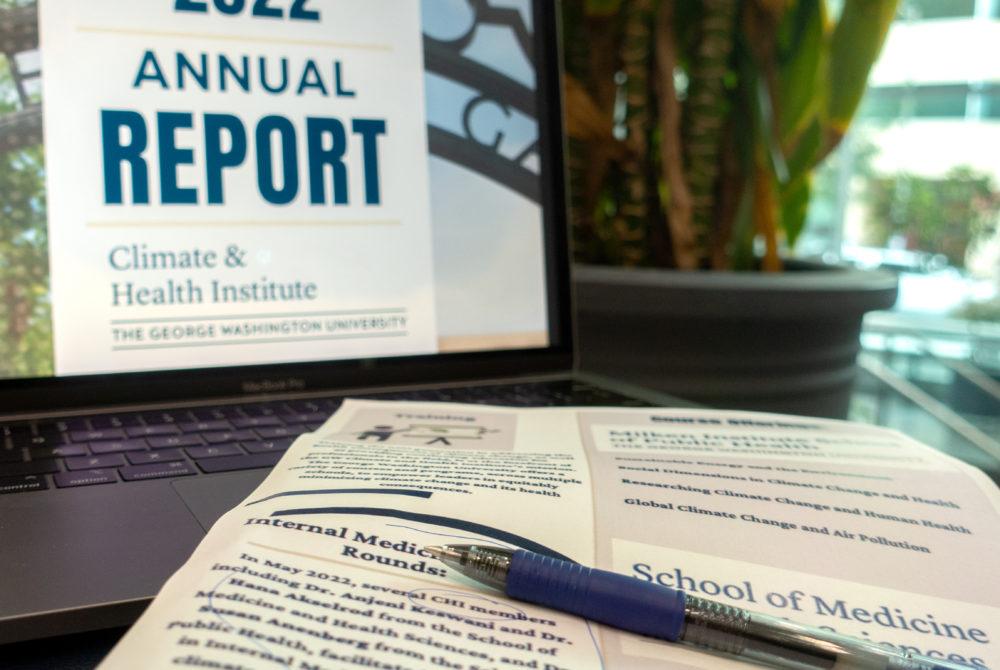Climate and Health Institute sums up its launch year – The GW Hatchet


This report summarizes the group’s research, training, courses, webinars, and examples of actions taken to address issues related to climate change.
The GW Climate and Health Institute has released its first annual report for 2022, highlighting the institute’s achievements in its first year of operation.
The report includes A summary of the Institute’s research, training, courses, webinars, and examples of actions taken to address issues related to climate change, and encouraging a global response to threats from governments. CHI is made up of faculty members from the university’s 10 schools, The Milken Institute School of Public Health and the School of Medicine and Health Sciences, according to the report.
“The Annual Report highlights the many achievements of CHI and its affiliated faculty, staff and students in the 2021-22 school year,” the official said. Tweet.
This report will educate people about the areas of climate change and human health research, including air pollution, climate change social movements, infectious diseases, sustainability, extreme weather, food systems and nutrition, mental health, and environmental justice. Shows research by CHI members aimed at
CHI was launched as a policy-based research institute of professors and appointed Susan Annenberg as Director at the beginning of the Fall 2021 semester.
The official climate and health concentration For Milken graduate students housed under CHI This fall semester prepares graduate students for careers in the climate field and teaches students to assess climate change-related health risks such as asthma.
In the 2021-22 academic year, CHI hosted eight webinars with nearly 600 attendees on various topics in the climate and health space, according to the report.
Report highlights comments from CHI members to federal agencies, public testimony to DC Commission of the Council on Transport and the Environment and DC Public Schools Board of Education Performance Monitoring Hearings.
Annenberg and Lynn Goldman, dean of the School of Public Health, co-signed the Amicus Brief, a legal document filed with the court containing information about the incident from individuals or organizations not directly involved in the incident. did. The Protection Agency’s Ability to Regulate Greenhouse Gases to the U.S. Supreme Court. The Supreme Court later ruled against the EPA on the matter, limiting its ability to regulate greenhouse gases without congressional approval.
“Training the next generation and providing continuing education for professionals in the field to address the health impacts of climate change is at the forefront of the mission of the GW Institute for Climate and Health.” Officials said in a report.
This article appeared in the August 22, 2022 issue of Hatchet.













